Have you paid a visit to Western Carolina University’s “restricted section” in Hunter Library? If not, you’re not alone. Most students haven’t and few actually know where it’s located.
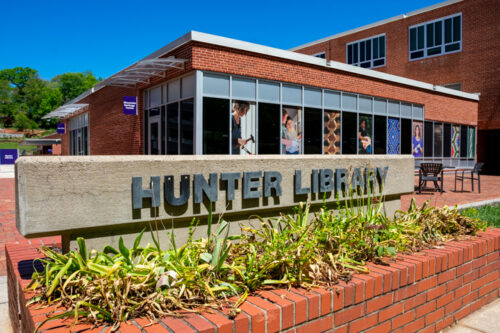
According to the website, Hunter Library houses over 620,000 volumes in print, nearly 18,000 media items, and over 1.5 million items on microform. What many don’t know is that the library is home to one of the largest collections of Western North Carolina historical artifacts in the area, and it all resides in a restricted section known as the “Special Collections.” I contacted Liz Harper, head of this department, and she was happy to grant me access as well as provide information on the collections themselves.
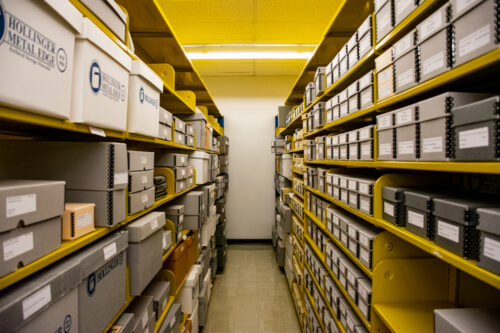
Special Collections is located on the second floor of Hunter Library. According to Harper, these collections focus on manuscripts documenting Southern Appalachian life and natural history, with particular attention to Western North Carolina. The manuscripts include letters, diaries, business and financial records, legal documents, literary productions, maps, news clippings, and photographs all coming from the Southern Appalachian region.
The collections have a strong emphasis on Southern Appalachia. Such documents encompass Southern Appalachian cultural heritage, arts and crafts, authors, people, historic photographs, and wartime collections ranging from the Civil War to Vietnam. The collections also have a variety of regional books as well as books that support and give context to the archival collections. However, you cannot check these out as they do not circulate like regular books. Luckily, patrons are welcomed and encouraged to use the special collections reading room during open hours.
“Our materials are donated by every kind of person who either lives in Western North Carolina, has family that is from here, or attended Western Carolina University,” Harper said.
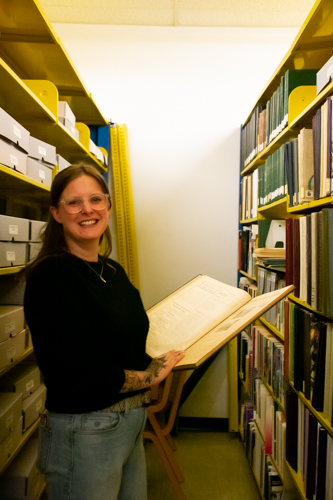
“There’s really no specific type of donor but they are donating things that have great personal meaning for them and we are proud to be chosen as a steward of their materials.”
In addition to running the special collections unit, Harper is an associate professor who has responsibilities in the area of committees and scholarship. Harper serves on numerous library committees such as exhibits, campus wide, award, and advisory committees. She is currently the program chair for the 2024 Appalachian Studies Association conference which will be held at WCU next March. Harper personally researches and writes about Southern Appalachia and as of recently, is working on a paper about the early Black community and the Cullowhee Valley.
Harper graduated from the University of Michigan School of Information and got her Master’s of Science in Information, Archives, and Records Management. She then went on to become the Curator of Collections at the Arab American National Museum in Dearborn for three and a half years.
Not long after, she found her way to Catamount Country when a position opened up in the special collections.
“I came down to WCU in 2014 and was the library’s first Digital Initiatives Librarian. When the archivist of 34 years retired, we merged the digital initiatives unit, and I oversaw the special collections unit.”
Harper is glad to work in a place that gives people investment in their history and maintaining a sense of place. There are many varieties and a lot of time spent helping patrons with reference requests. As a result, Harper often gets to spend a lot of time diving deep into interesting subjects and discovering fun materials. Additionally, she’s gotten to know many people across the campus and region. Harper’s day-to-day work involves ensuring that the team has the resources it needs to preserve and make materials accessible. She works with donors, community partners, and in addition to working with the collections, she often consults with local historical organizations to provide guidance on storage, preservation, and digitization.
The Special Collections in Hunter Library were established in 1957 and had only one cabinet of materials in 1966. The first archivist was hired in 1970 and 1974 saw the first reading room dedication. George Frizzell was hired as the student worker and eventually went on to become a temporary assistant. In 1982, the collections moved to their current home on the second floor and Frizzell remained in the library until his retirement in 2016. Harper then merged the special and digital collections into one unit and has been in charge since.
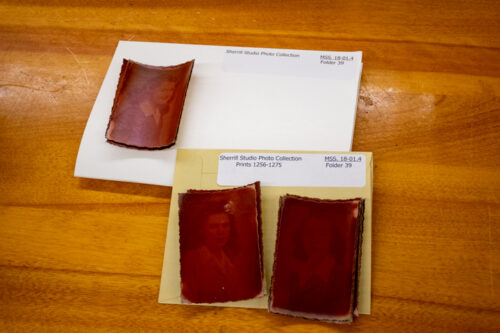
The archive’s largest collection is of the Nantahala Power and Light Company. Nantahala Power and Light was formed in 1929 by Alcoa to harness the hydroelectric power of Western North Carolina and serve as a public electric utility for the region. The company operated under Alcoa until 1988 when it was absorbed by Duke Power known today as Duke Energy. The collections primarily consist of files from the company during this period.
The special collections also have a vast array of WCU memorabilia with the largest collection of these being yearbooks, pamphlets, and photos. Old photos of campus can be spotted in various buildings such as Apodaca, Brown, and Killian, many of which came from the special collections.
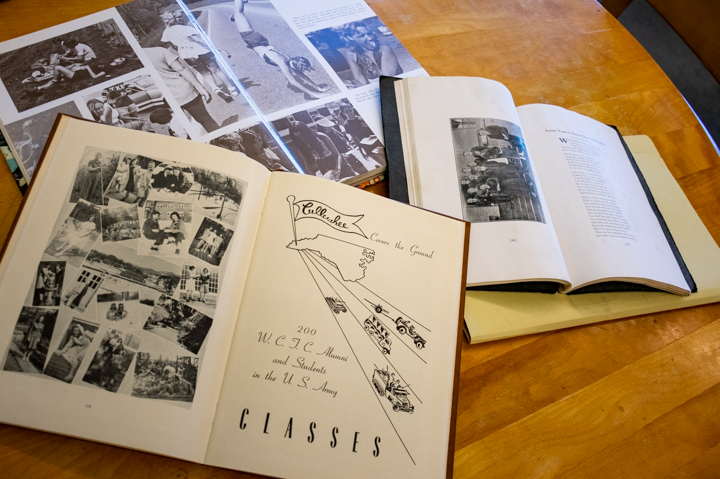
In addition to having physical photographs, select manuscripts from the collections have also been digitized and can be easily accessed online. The digitization process isn’t easy, and few materials make it online in this format.
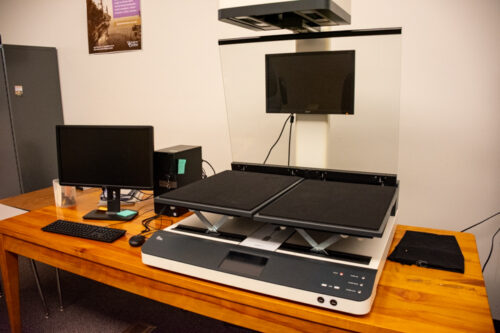
When Harper and her team are reviewing a physical collection, they look for materials that are particularly unique or will have wide interest. These get selected for digitization and materials that are particularly fragile that may deteriorate when handled are of high priority. The team makes two copies of each item scanned, a high resolution one for preservation storage and a smaller one that is put online and is easier to use for other purposes. Once digitized, an item goes to the Metadata and Cataloging Department who assist in doing thorough and detailed descriptions of each item. It can take a few months for an item to go through this process but on average Harper and her team put nearly 5,000 items online yearly.
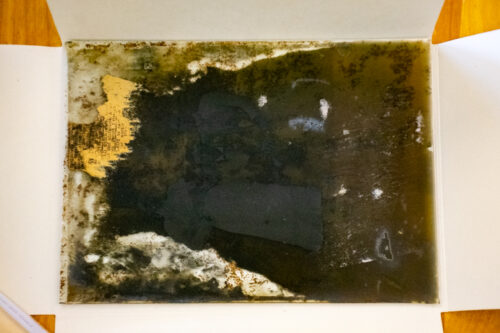
As fragile as some items are, the special collections department comes prepared for any disasters that could permanently destroy the collections.
“We have a list of priority salvage items and where they are stored so that we can quickly grab them in case of an emergency,” Harper said.
“As for our digital items, they are backed up on the university servers which are backed up nightly. Our digital collections platform also provides a backup, and we back up items on an external hard drive monthly. We try to build in as much redundancy as possible.”
Whether students realize it or not, the special collections are heavily involved in the university. The department sees many history and English students, whether it be for a full class coming in for a talk, activity, or for individual and group projects. Art students are another common sight who come in to use reference materials. Respectively, the collections host up to two interns a year. Research Services are also provided for the university through the collections, particularly when an anniversary takes place, or a new building is erected. The collections are often asked to provide historic photos or other history for the event about the site in question on campus.
Would you like to visit? The special collections can be viewed online or in person by appointment. The department can be reached via email at specialcollections@wcu.edu or by telephone at 828-227-7474.



